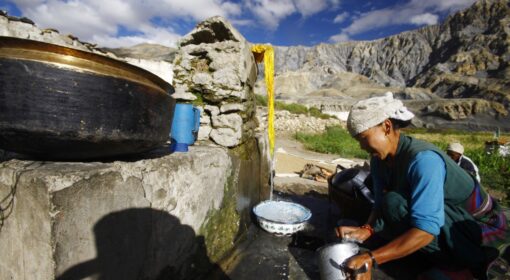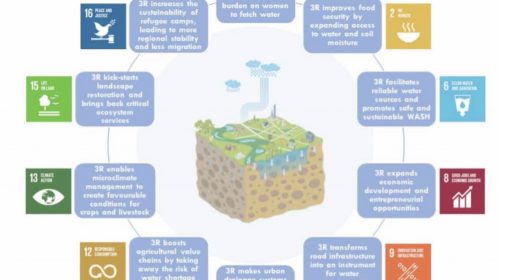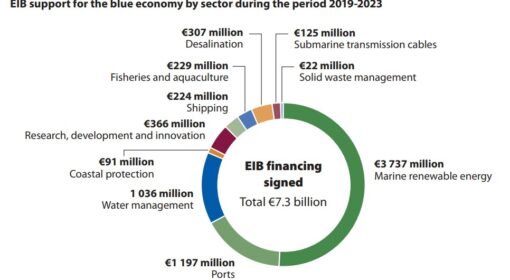by Fredrick Mugira
January 27, 2015
Mid-January 2015, over 300 people converged in Zaragoza, Spain to take part in the International Annual UN–Water Zaragoza Conference. The conference was used as an occasion for analyzing water-related SDGs and the role of the different actors for their implementation.
There are 17 proposed SDGs and 169 targets. SDG 6 focuses on water and sanitation. It has 8 targets. Others five SDGs have seven targets directly or indirectly linked to water-related issues. A high level summit to adopt the SDGs takes place in New York, USA in September this year.
Linking SDGs with MDGs
Sustainable Development Goals (SDGs), will build upon the Millennium Development Goals (MDGs) and converge with the post-2015 development agenda. SDG 6 will therefore build on goal 7, target 10 of the Millennium Development Goals that calls for halving by 2015 the proportion of people without sustainable access to safe drinking water and basic sanitation.
Most developing countries have already attained their target to halve the number of people who do not have access to safe drinking water. They however have failed to provide access to basic sanitation, so much so that in one of its posts online, the Water Supply and Sanitation Collaborative Council (WSSCC) warns that, “At current rate of progress, the world will miss the Millennium Development Goal (MDG) for sanitation by over half a billion people.”
According to the UN children agency –UNICEF– up to 2.5 billion people worldwide do not have adequate toilets. One billion of these practice open defecation. They ease themselves in open places such as bushes and water bodies. And the most affected regions are Africa where 70 percent of the people do not have access to improved sanitation. Others are Oceania and South Asia where 64 percent and 59 percent of the population there respectively lack proper sanitation and hygiene facilities.
So what went wrong? How can the target of achieving adequate and equitable sanitation and hygiene for all and ending open defecation by 2030 be achieved?
The Failed Promise
The picture depicted during the International Annual UN–Water Zaragoza Conference showed clearly that all actors: civil society, public and private actors, are on the verge of failing their promise; the promise of halving by 2015 the proportion of people without basic sanitation.
But the blame should be put squarely on public actors: policy makers, regulators and public authorities; the actors that make up government in most developing countries.
Most governments in developing countries lack commitment. Coupled with lack of enough funds, such governments sidelines issues of sanitation and hygiene. They prefer to inject the little funds they have in sectors they term as most urgent such as defence.
In a country like Uganda for example, according to WaterAid, the water sector’s, “On-budget funding as a share of government expenditure has declined from 4.9% in 2004/05 to 1.7% in 2011/12.” It is also true that the water and sanitation sector in Uganda receives minimal funding compared to other sectors such as defence, education and health.
But also in countries where funding is available, corruption in the water sectors does not let these funds be invested in the right projects. The funds are swindled by public officials. This is common in these countries because of lack of open, transparent and effective systems of governance.
I also agree with Dr Iskander Adbullaev, Executive Director for the Regional Environmental centre for Central Asia, when he says that lack of strong cooperation networks is partly to blame for hindering some Asian countries from achieving MDGs related to water and sanitation. Dr Iskander was speaking during the special regional session about implementing the water-related SDGs in the UNECE region at the 2015 UN-Water Annual International Zaragoza conference. He appealed to countries to team up and pull resources to enable them achieve this target.
In South-East Asia, up to 178 million people have no access to sanitation services. The lack of safe water and sanitation in most developing countries is the basis for most problems there. In a country like Vietnam, up to 20,000 people die each year due to lack of clean water and proper sanitation and hygiene.
Delivering the Promise
Governments in developing countries must show commitment and come up with creative methods to raise funds for financing water and sanitation programs and capacity development; and these funds must be invested in the right ventures. They must promote the agenda of addressing corruption and supporting accountability and transparency in the water sector.
This has actually worked for South Korea which was able to progress from 17 percent water supply coverage in 1961 to 98 percent in 2012. Dr. Jong Ho Ahn, Senior Researcher Fellow and Director for Environmental Policy Research Group Division of Water Environment at Korea Environment Institute, attributes this remarkable progress to the commitment of South Korea’s government to finance programs meant to help its people live better lives.
He agrees with my suggestion that governments must compel themselves to help their people live better lives and one of such commitments is provision of safe water and basic sanitation.
{jcomments on}




